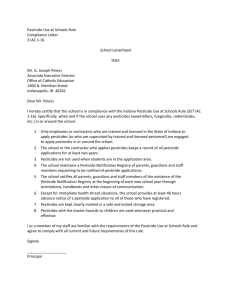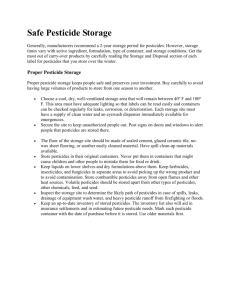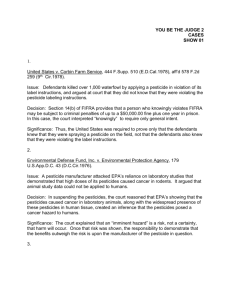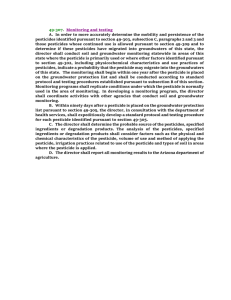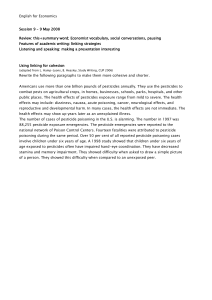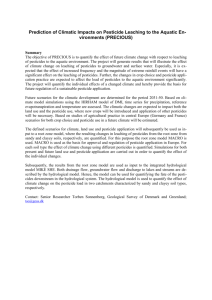SECTION .1900 ‑ PESTICIDE STORAGE 02 NCAC 09L .1901
advertisement
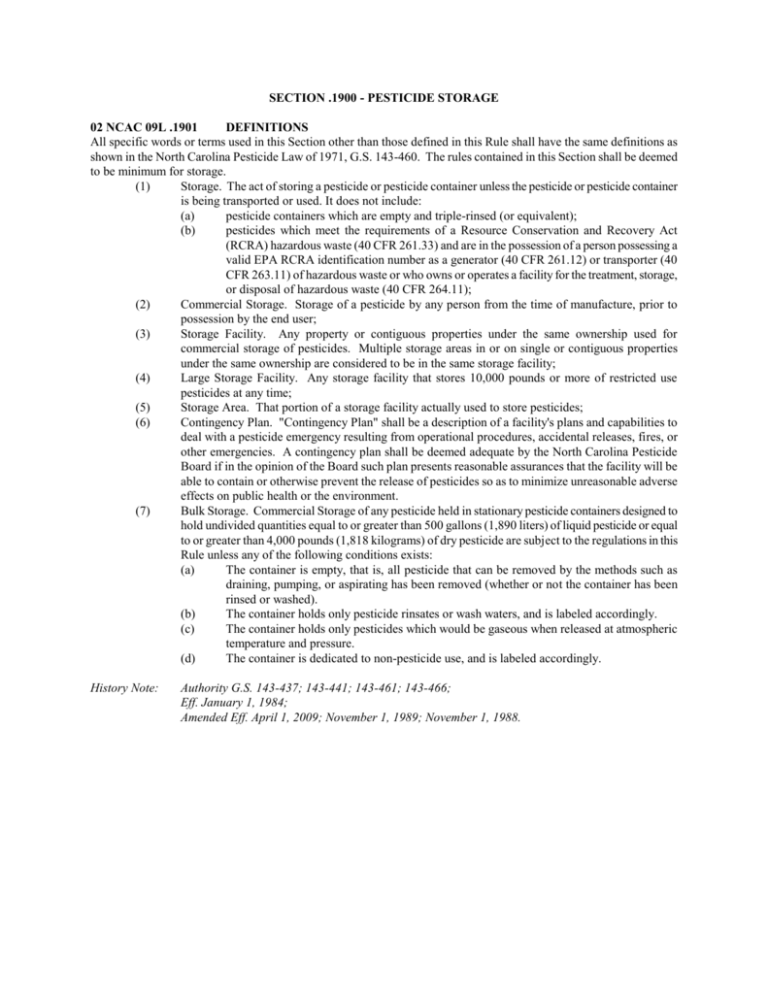
SECTION .1900 - PESTICIDE STORAGE 02 NCAC 09L .1901 DEFINITIONS All specific words or terms used in this Section other than those defined in this Rule shall have the same definitions as shown in the North Carolina Pesticide Law of 1971, G.S. 143-460. The rules contained in this Section shall be deemed to be minimum for storage. (1) Storage. The act of storing a pesticide or pesticide container unless the pesticide or pesticide container is being transported or used. It does not include: (a) pesticide containers which are empty and triple-rinsed (or equivalent); (b) pesticides which meet the requirements of a Resource Conservation and Recovery Act (RCRA) hazardous waste (40 CFR 261.33) and are in the possession of a person possessing a valid EPA RCRA identification number as a generator (40 CFR 261.12) or transporter (40 CFR 263.11) of hazardous waste or who owns or operates a facility for the treatment, storage, or disposal of hazardous waste (40 CFR 264.11); (2) Commercial Storage. Storage of a pesticide by any person from the time of manufacture, prior to possession by the end user; (3) Storage Facility. Any property or contiguous properties under the same ownership used for commercial storage of pesticides. Multiple storage areas in or on single or contiguous properties under the same ownership are considered to be in the same storage facility; (4) Large Storage Facility. Any storage facility that stores 10,000 pounds or more of restricted use pesticides at any time; (5) Storage Area. That portion of a storage facility actually used to store pesticides; (6) Contingency Plan. "Contingency Plan" shall be a description of a facility's plans and capabilities to deal with a pesticide emergency resulting from operational procedures, accidental releases, fires, or other emergencies. A contingency plan shall be deemed adequate by the North Carolina Pesticide Board if in the opinion of the Board such plan presents reasonable assurances that the facility will be able to contain or otherwise prevent the release of pesticides so as to minimize unreasonable adverse effects on public health or the environment. (7) Bulk Storage. Commercial Storage of any pesticide held in stationary pesticide containers designed to hold undivided quantities equal to or greater than 500 gallons (1,890 liters) of liquid pesticide or equal to or greater than 4,000 pounds (1,818 kilograms) of dry pesticide are subject to the regulations in this Rule unless any of the following conditions exists: (a) The container is empty, that is, all pesticide that can be removed by the methods such as draining, pumping, or aspirating has been removed (whether or not the container has been rinsed or washed). (b) The container holds only pesticide rinsates or wash waters, and is labeled accordingly. (c) The container holds only pesticides which would be gaseous when released at atmospheric temperature and pressure. (d) The container is dedicated to non-pesticide use, and is labeled accordingly. History Note: Authority G.S. 143-437; 143-441; 143-461; 143-466; Eff. January 1, 1984; Amended Eff. April 1, 2009; November 1, 1989; November 1, 1988.


